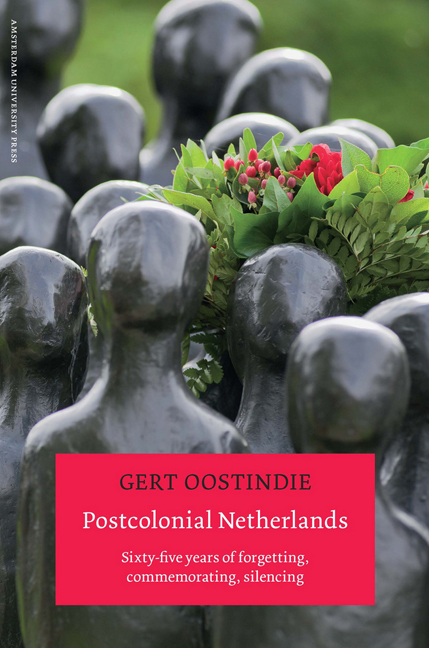Book contents
- Frontmatter
- Contents
- Introduction
- 1 Decolonization, Migration and the Postcolonial Bonus
- 2 Citizenship: Rights, Participation, Identification
- 3 The Struggle for Recognition: war and the Silent Migration
- 4 The Individualization of Identity
- 5 Imagining Colonialism
- 6 Transnationalism: a Turning Tide?
- 7 An International Perspective
- 8 ‘Postcolonial’ (in the) Netherlands
- Notes
- Bibliography
- Acknowledgements
- Index of People, Organizations and Memorial Sites
Introduction
Published online by Cambridge University Press: 20 January 2021
- Frontmatter
- Contents
- Introduction
- 1 Decolonization, Migration and the Postcolonial Bonus
- 2 Citizenship: Rights, Participation, Identification
- 3 The Struggle for Recognition: war and the Silent Migration
- 4 The Individualization of Identity
- 5 Imagining Colonialism
- 6 Transnationalism: a Turning Tide?
- 7 An International Perspective
- 8 ‘Postcolonial’ (in the) Netherlands
- Notes
- Bibliography
- Acknowledgements
- Index of People, Organizations and Memorial Sites
Summary
The Netherlands is a small, but densely populated Western European country, a large part of which was reclaimed from the sea. Once a prominent player in world history, it is now a middle-sized partner in the European Union. There have been times when the Dutch were proud of their accomplishments and their position in the world, other times when they were self-effacing or frustrated, and often all of these at the same time. This Dutch ambivalence has also caught the eye of foreign commentators. The British historian Simon Schama observed that even at the zenith of their power and wealth in the seventeenth century the Dutch were constricted by an ‘embarrassment of riches’.
The image of the Netherlands in the Golden Age is of a country of industrious workers, adroit merchants, ruthless colonialists, and God-fearing Protestants who took pleasure in their wealth with mixed emotions. This society was reputed to be exceptionally tolerant of religious diversity, to have a flourishing cultural and scientific life, to be a magnet for migrants, and a state that rejected the notion of a hereditary monarchy. The Republic liked to see itself as setting an example. But over the next few centuries it was increasingly cut down to size until it became a modest player on the world stage, significant in world politics largely because it managed to maintain its position as a colonial power, with the Indonesian archipelago as the pearl in its crown. And thus it remained, even after it became a monarchy following the Napoleonic Wars and, in 1848, a parliamentary democracy – albeit initially a strongly elitist one.\
The Second World War brought the German occupation of the Netherlands, the Japanese invasion of the Netherlands East Indies, and American and British protection of the Dutch Caribbean colonies of Suriname and the Netherlands Antilles. It was not until later that the extent to which the Netherlands had suffered from its imperial overstretch became clear; the way in which the political elite stubbornly tried to avert Indonesian independence revealed a provincial mentality that did anything but tally with the domestically, widely-held conviction that the Dutch could teach the world, not just its colonies, about selfless development and gradual emancipation.
- Type
- Chapter
- Information
- Postcolonial NetherlandsSixty-Five Years of Forgetting, Commemorating, Silencing, pp. 7 - 22Publisher: Amsterdam University PressPrint publication year: 2012



